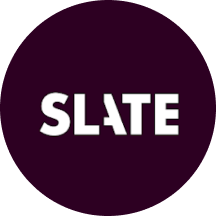The Parti Québécois (PQ) has achieved a significant victory in a recent byelection, marking a notable shift in Quebec's political landscape. After struggling in the last provincial election three years ago, when the party secured only three seats in the National Assembly and garnered just 14.6 percent of the vote, the PQ has now won three consecutive byelections. This latest win occurred in Arthabaska, a semi-rural riding located between Montreal and Quebec City.
PQ leader Paul St-Pierre Plamondon expressed his excitement, stating, "This reminds me of the Parti Québécois of the 1970s." The party has been leading in polls for several months, positioning itself as a viable alternative to the current government led by François Legault of the Coalition Avenir Québec (CAQ).
In the byelection held in Arthabaska-L’Érable, PQ candidate Alex Boissonneault won decisively, receiving over 46 percent of the vote. His main opponent, Éric Duhaime, leader of the Quebec Conservative Party, secured 35 percent. This victory marks the first time since 1998 that a PQ candidate has been elected in this riding.
Duhaime and other candidates attempted to leverage voter concerns about a potential third referendum on Quebec's independence, a promise made by Plamondon if the PQ forms the next government. However, this strategy did not resonate with voters. Instead, there appears to be a growing enthusiasm for Quebec independence, particularly among younger voters. Recent surveys indicate that support for separation among those aged 18 to 34 has surged to nearly 50 percent, a significant increase of 15 percentage points from earlier polls.
The results of the byelection signal troubling times for other major provincial parties. The CAQ, which previously won the riding with 52 percent of the vote, saw its support plummet to just 7 percent. This decline prompted Premier Legault to acknowledge that Quebecers are dissatisfied with his government. Despite this, Legault plans to remain in leadership and will announce a cabinet reshuffle next month in an effort to regain public support.
The Quebec Liberals, currently the Official Opposition, also faced disappointing results, receiving only 9.3 percent of the vote, which placed them third behind the PQ and CAQ. In his victory speech, Plamondon focused on pressing issues such as the cost of living, public service performance, and the government's deficit, rather than solely on the topic of separation.
As the political landscape evolves, the PQ is expected to propose innovative solutions to the challenges facing Quebec. Meanwhile, the other parties, particularly the Liberals, may resort to traditional tactics of invoking fears of a referendum to sway voters. However, the byelection results suggest that such strategies may no longer be effective. Despite the rising interest in independence among young people, polls indicate that 60 percent of Quebecers would still vote against a referendum on independence, mirroring sentiments from the 1980 referendum.
Plamondon remains committed to holding a public consultation on sovereignty if elected as the next premier. The recent political developments in Quebec highlight a potential resurgence of the separatist movement, reminiscent of earlier decades.

 Canada News
Canada News

 The Timmins Times
The Timmins Times National Post
National Post Local News in Ontario
Local News in Ontario ESPN NFL Headlines
ESPN NFL Headlines Raw Story
Raw Story The List
The List New York Post Opinion
New York Post Opinion Slate Politics
Slate Politics Post Register
Post Register New York Post
New York Post